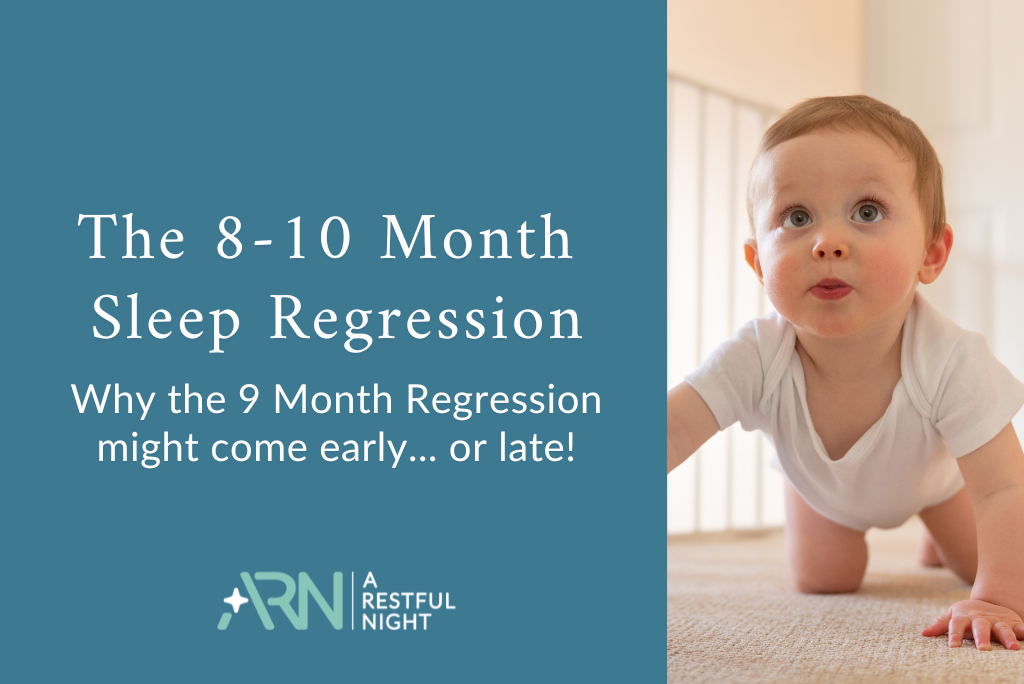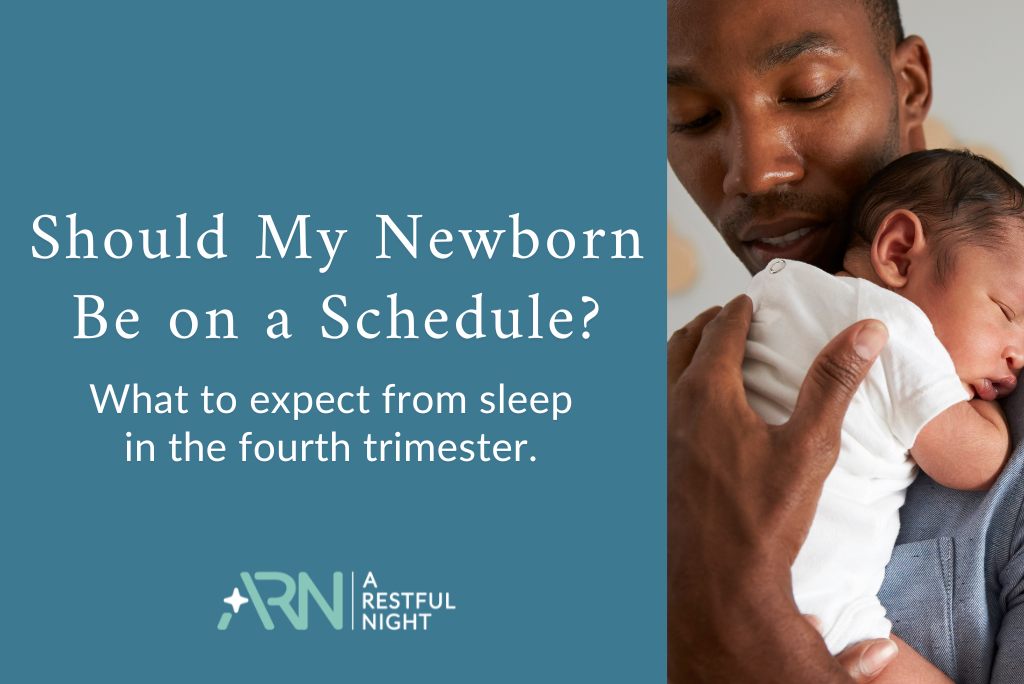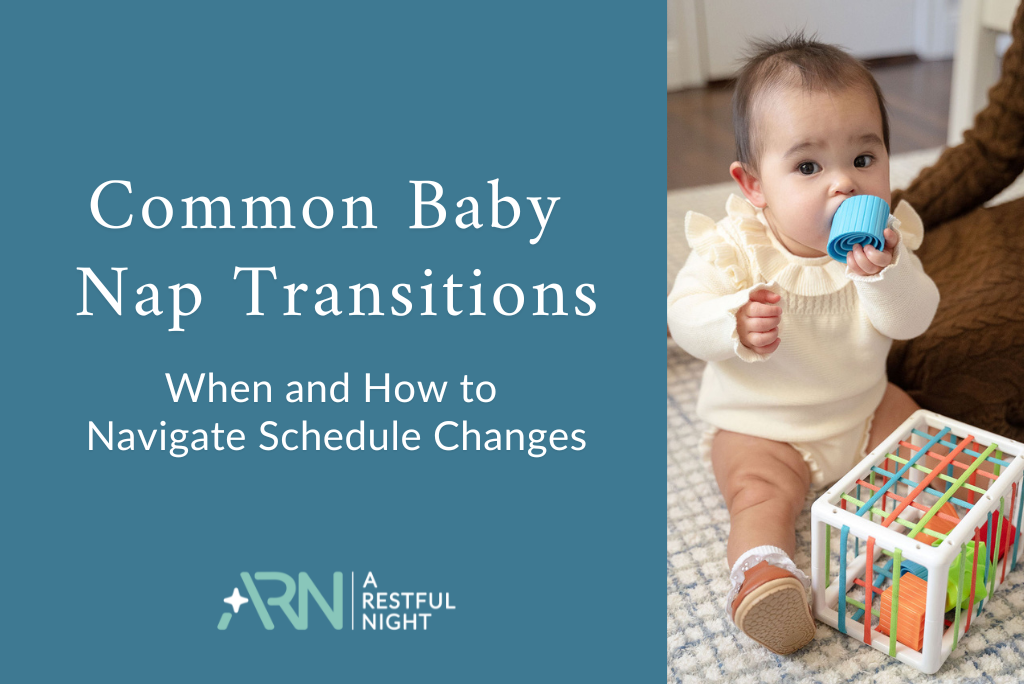The Link Between Impulse Control and Toddler Sleep Struggles
If bedtime feels like a battle every single night, you're not alone. So many parents deal with toddlers who just won't stay in bed, wake up multiple times, or show up in their room at 5 AM ready to party. While we often blame sleep regressions or "phases," there's another big piece of the puzzle that many families miss: impulse control.
Your toddler's ability to control their impulses is directly linked to their development, and their daily routine! Once you understand this connection, chaotic bedtimes can finally start making sense (and hopefully get a lot easier!).
What Is Impulse Control in Toddlers?
Think of impulse control as your child's ability to hit the "pause" button before acting. It's what helps them to share a toy instead of grabbing it, to sit still for story time, or to stay in bed when every fiber of their being wants to get up and play.
The part of the brain that handles impulse control doesn't finish developing until around age 25. For toddlers, this area is still developing. So when your 2-year-old knows they're supposed to stay in bed but keeps getting up anyway, their brain isn't ready to override those strong impulses yet.
Your toddler isn't trying to drive you crazy or test your limits on purpose. Their developing brain just can't always follow through on what they know they should do.
How Poor Impulse Control Impacts Sleep
When toddlers struggle with impulse control, bedtime becomes extra challenging. Going from running around and playing to lying quietly in bed requires a lot of self-control that many little ones just don't have yet.
The Never-Ending Bedtime Battle
You know the drill: you put your toddler to bed, they get up. You put them back, they get up again. This happens because even though they understand it's bedtime, the urge to keep playing or hang out with you is stronger than their ability to stay put.
This creates a frustrating cycle where everyone gets more and more tired, which makes it even harder for your child to use what little impulse control they do have.
Those Middle-of-the-Night Visits
Children who struggle with impulse control during the day often have the same issues at night. When they naturally wake up between sleep cycles (which all kids do), they can't resist the urge to get up, call for mom or dad, or wander into your room.
Instead of rolling over and going back to sleep like we want them to, that immediate need for comfort or excitement wins out. Cue the 3 AM bedroom visits that leave you wondering what you're doing wrong.
When Impulse Control Typically Develops
Knowing what's normal for your child's age can help you set realistic expectations and choose the right strategies.
18 Months to 2 Years: Just Getting Started
At this age, toddlers are just beginning to develop any impulse control at all. They might understand simple directions, but expecting them to resist strong urges is pretty unrealistic.
Most kids this age still do best with the physical boundaries that cribs provide. Asking them to stay in a regular bed without getting up is like asking them to do something their brain just isn't ready for yet.
2 to 3 Years: The Ups and Downs
This is when things get interesting (and sometimes more challenging). Your toddler starts showing better impulse control some days, but it's still pretty inconsistent, especially when they're tired, stressed, or dealing with big emotions.
Don't be surprised if you have a great bedtime one night, followed by a disaster the next. That's totally normal, as these skills are still developing and strengthening.
3 to 4 Years: Getting There
By age 3, most kids have developed enough self-control to handle a big-kid bed successfully. They can usually follow bedtime routines more consistently and resist those immediate urges to get up and play.
This is why many sleep experts (myself included) recommend waiting until closer to age 3 to make the crib-to-bed transition. Your child's brain is finally ready to handle that extra freedom responsibly.
How to Help Your Toddler Build Better Impulse Control
The great news is that impulse control can be strengthened with practice and the right strategies. By working on these skills during the day, you'll see improvements at bedtime too.
Practice During the Day
Give your toddler lots of chances to practice self-control during low-pressure moments:
• Play games like "red light, green light", "freeze dance", or “simon says” to practice following instructions
• Practice waiting during daily routines (like waiting for you to open a snack)
• Do simple activities that require starting and stopping
• Work on following 2-3 step directions
The more your child practices managing impulses during the day, the easier it becomes at bedtime.
Set Up Their Room for Success
Make it easier for your child to make good choices by removing temptations and creating clear boundaries:
• Keep toys out of the bedroom or in a closed toy box
• Use nightlights instead of overhead lights to keep things calm
• Consider a baby gate or a child proof door lock if your child is struggling with staying in their room
• Keep their sleep space simple and comfortable, not exciting
• Use a Hatch Light (or another okay-to-wake clock) to give your child a clear visual and verbal cues that it’s time to stay in bed and rest their body or that it’s appropriate to get up
Stick to Predictable Routines
When bedtime follows the same pattern every night, your child doesn't have to use as much mental energy figuring out what comes next. This leaves more impulse control "fuel" for the harder parts, like actually staying in bed.
Keep your expectations simple and specific. Instead of saying "be good at bedtime," try "stay in your bed until your wake-up light turns on." Clear rules are much easier for developing brains to follow.
Be Patient with the Process
Remember that building impulse control takes time. There will be good nights and rough nights, and that's completely normal. Celebrate the small wins and try not to get discouraged by setbacks—they're all part of the learning process.
Sleep Pressure and Impulse Control
One of the most effective ways to support your child’s impulse control at bedtime? Make sure they’re actually tired when it’s time to sleep. This is where sleep pressure comes in.
What Is Sleep Pressure?
Just like hunger increases the longer you go without eating, sleep pressure increases the longer your child has been awake. It peaks right before bedtime… if their schedule is timed right.
When your child has high sleep pressure, their body is primed and ready for sleep. That physical tiredness helps make it easier for them to stay in bed, lie still, and fall asleep faster. Low sleep pressure (for example, if your toddler napped too late or bedtime is too early) means they’re just not tired enough yet – and that makes impulse control even harder.
How to Use This to Your Advantage
Getting your child’s daily routine dialed in is one of the best ways to support both sleep pressure and impulse control:
Cap naps at age-appropriate lengths to preserve enough sleep pressure for bedtime
Avoid too much downtime or screen time before bed that can lower sleep drive
Avoid naps late in the day and be sure you are following proper wake time before bedtime (for example, a 2.5 year old with a 60 minute nap should be up about 5.5 hours before you attempt bedtime, so naptime around 1:00-2:30pm range is perfect)
When you time bedtime right—so your child is truly ready for rest—you take some of the pressure off their impulse control. That makes it much easier for them to make good choices and stay in bed, even when their developing brain still has a ways to go.
A Note on Potty Training
If your toddler is in the midst of potty training, or showing signs they’re ready, you’re actually witnessing an important sign of developing impulse control.
Successfully using the potty requires a child to notice a physical urge, pause what they’re doing, and respond with intention: all key aspects of self-regulation and impulse control. That moment of “holding it” instead of going right away shows that their brain is beginning to override automatic responses.
So what does this have to do with sleep?
Potty training and sleep both require similar skills:
Pausing and listening to body cues
Following through on routines and expectations
Resisting immediate urges (like getting out of bed or playing)
If your child is starting to master potty training, that’s a great sign their brain is building the connections needed for stronger bedtime behavior, too. Of course, that doesn’t mean every night will be perfect—but it does mean they’re gaining the tools to improve over time.
What If Your Child’s Timeline Looks Different?
Every child develops impulse control at their own pace, and that pace may look very different for children who are neurodivergent. Kids with ADHD, autism, or other developmental differences might take longer to build these skills, or need additional support to manage bedtime routines successfully.
That doesn’t mean anything is “wrong” or that your child isn’t trying, it just means their brain is wired differently. A pediatric sleep consultant, occupational therapist, or developmental specialist can help you tailor strategies that truly work for your child.
Final thoughts
Working on your toddler's impulse control doesn't just help with sleep—it sets them up for success in so many other areas: potty training, playing with other children, being a good classmate at school!
Here's the really cool part: better impulse control leads to better sleep, and better sleep helps impulse control continue to develop. It's a positive cycle that benefits your whole family.
If you think impulse control might be holding your child back from the great night’s sleep they need - reach out for a complimentary consultation call! We’re here to strategize and help get you back on track!
Meg O'Leary is an Infant and Child Sleep Expert and the founder of A Restful Night. Based in Westchester County, NY, she leads a team of certified sleep coaches to provide virtual support to families across the US and around the world.






